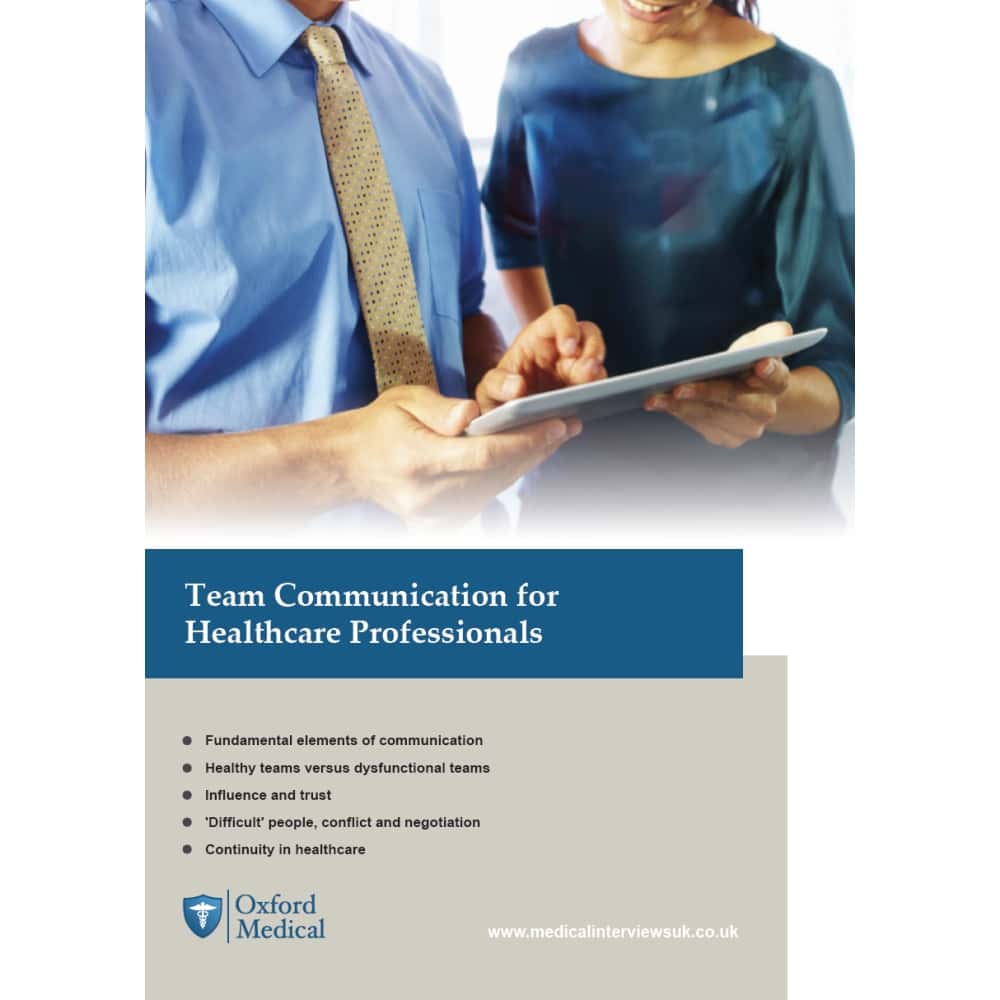Description
As a doctor, your ability to interact effectively with others has a powerful impact upon your patients, their carers and your colleagues. Explicitly recognised within the third and fourth domains of Good Medical Practice, a proactive approach to reviewing and enhancing your patient communication skills must be treated as equally important as any other clinical skill.
This book has been written to support you in your efforts to achieve and sustain improvements. We will introduce you to theories which we bring to life through examples and short exercises, helping you to crystallise your personal thoughts and experiences, before outlining methods which you can employ to communicate more effectively.
Choose from:
- A paperback version of the guide sent by post
- A PDF digital download version
Please note: If you book to attend our Advanced Patient Communication Skills Course for Doctors then you will receive a copy of this book as part of your package.
See our 10 page preview below.
Contents
Chapter 1: Introduction
1.01 What is communication?
1.02 Your personal patient communication challenges
1.03 What needs to be communicated and why?
Chapter 2: Creating dialogue
2.01 Neuroscience
2.02 Empathy
2.03 Rapport
2.04 Introductions and the use of names
2.05 Words, tone and body language
2.06 Physical contact
2.07 Presence and Focus
2.08 The Johari Window
2.09 Shadowing to improve patient care
2.10 Further methods for increasing awareness and deepening understanding
Chapter 3: Factors affecting communication and behaviour
3.01 Listening
3.02 Framing
3.03 Cultural differences
3.04 Personality type and preference
3.05 Logical Levels
3.06 Health Belief Model
3.07 Drivers of ‘non-compliance’
3.08 Associations
3.09 Perception of time
3.10 Stress
3.11 Five stages of grief
3.12 Family members, third parties and the internet
Chapter 4: Communication approaches in healthcare
4.01 Continuity of care
4.02 Concordance versus compliance and adherence
4.03 The Z-model
4.04 Theories of adult learning
4.05 Influence and persuasion
4.06 Breaking bad news – the doctor’s mind-set
4.07 Breaking bad news – a strategy
4.08 Handling complaints
4.09 When and how to say “No”
Chapter 5: Final thoughts
5.01 Final thoughts






